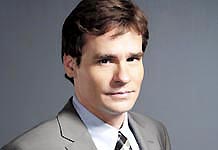Book reviews, book club style.
It's always interesting when books you read independently end up having a connection of sorts. I'm sure it is possible to connect
any two books, but our last two book club books have been historical fiction, both set around 1800, and in the same part of the world, across the English Channel from each other. From the story of Josephine at the start of the French Revolution, to the story of Mary Anning at the start of a new era in science/geology, both book were very interesting, well written, and felt educational as well as entertaining. Win for book club choices!
(We only pick from books our library has book club sets for, and that are available when Mary goes to get them, so sometimes our choices can be limited!)
The Many Lives and Secret Sorrows of Josephine B - Sandra Gulland, 436 pages
Confession: I knew practically nothing about the French Revolution other than some big names and the whole - Let them eat cake! Didn't finish Les Miserables or ever watch the musical. Couldn't even have given a rough estimate of dates. So, I found this book very educational, and I do want to read more about that time now. I did discover at the end of the book that this was the first of several books about Josephine. In fact, she only meets Napolean Bonaparte at the very end of the book, and he is the one who calls her Josephine. She wasn't Josephine until the last 50 pages! That certainly kept me reading.
This book tells the story
up to the point where Rose, a girl from the island of Martinique, marries Napoleon. Before that, she travels to France for an arranged (crappy) marriage, has two children, makes some important friends, and develops a real sense of responsibility for the people around her. Her husband was important in the French government, part of the revolution as well, but really, as a rich guy, was playing both sides.
Gulland has written a very readable tale, all the more remarkable because it is based on true facts. Gulland became obsessed with Josephine and spent years researching her life, resulting in this trilogy -
The Many Lives and Secret Sorrows of Josephine B; Tales of Passion, Tales of Woe; and
The Last Great Dance on Earth. I will definitely look into reading the rest of the series.
Remarkable Creatures - Tracy Chevalier, 305 pages
I've always been a big fan of Chevalier and her take on historical fiction. I've just about read all her books now, and have not been disappointed. Best known for
The Girl With the Pearl Earring, her book
The Lady and the Unicorn is my favourite.
Remarkable Creatures will be near the top of my favourites by her.
So, what did I learn about here? Mary Anning, the fossil collector from the very early 1800s. I know I've enjoyed a book when I find myself looking up information about the characters after I've read the book, and find myself wanting to visit the area. Lyme Regis in Dorset, England is a prime location of fossil finding. There is a museum there on the site of Mary's original house that would be very cool to see. The fossils that Mary found changed the view of the history of Earth, and started the classification of dinosaurs.
Good historical fiction for me focuses on the characters and people and the facts become part of the story. Mary Anning and Elizabeth Philpot were two women leading unconventional lives in 1800. Neither married and with an age difference of twenty years, they became good friends and fossil hunters on the beach in Lyme. Different social stations added to the difficulties, but they managed to become experts, and eventually had men coming to buy their fossils, or learn from them. No easy feat for women who couldn't even vote at that time. The developing scientific thought, the poverty, women's roles, and the social classes provide lots of areas of discussion, and make a very well rounded, readable book.





